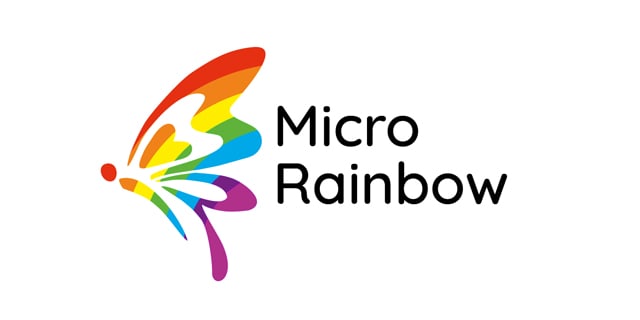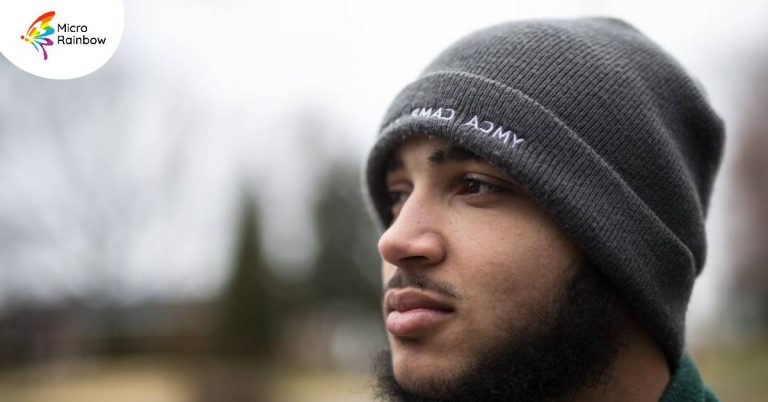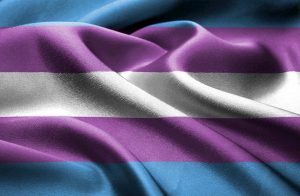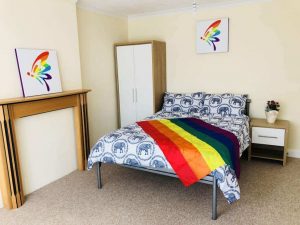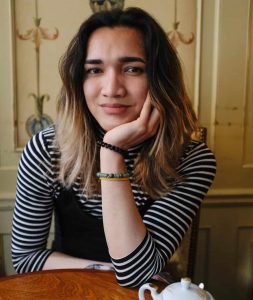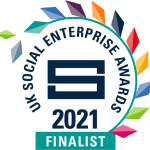The asylum claim backlog means that some people are waiting many years for their asylum claims to be assessed. Omar is a gay man from Morocco, and he first applied for asylum on the basis of his sexuality in 2017. He was 23 years old. He was granted refugee status six years later.
In Morocco, same-sex sexual activity among both men and women is outlawed, carrying sentences of up to three years in jail as well as fines. Recent history shows the law being actively applied, leading to ongoing discrimination and violence against LGBTQI individuals.
As a gay man, Omar would not be safe from persecution or imprisonment in Morocco. LGBTQI people cannot live openly or safely in Morocco. As a young gay man, he would also be subject to family rejection, poverty and destitution in Morocco. Despite this, Omar still had to wait more than five years for his refugee status to be approved. During this time, he could not work, he had limited options for studying and could just not live his twenties as other young people do. All he could do was wait. This is his story:
Leaving Morocco for the UK
My name is Omar. I am 29 years old and am from Morocco in North Africa.
I came to the UK when I was very young, 23, first on a student visa, and then I claimed asylum six months later. I claimed asylum because I am a gay man, and in Morocco being gay is not accepted.
In Morocco it is horrible for LGBTQI people. Very, very, hard. You have to hide that you are LGBTQI. You don’t have any freedom as a gay person. You can’t do what you want with your partner, you have to keep everything completely hidden. And if the Government finds out that you are gay, they will put you in prison.
I knew I was gay when I was 14 or 15, and I also knew that I could not be open about it. I had to keep it secret from everybody. If my family found out, they would have rejected me. As a young person without financial independence, that would have meant dropping out of school, becoming homeless and living at the margin of society. All this while hoping that the Government won’t get to me…
By the time I was old enough, I moved from my home city to Casablanca. I thought it would be easier if I was somewhere where nobody knew me. But even in Casablanca I had to keep it pretty much a secret. It’s tiring to keep secret who you really are all the time. Even now, I still speak to my mother back in Morocco, but she doesn’t know that I am gay. She just knows that I live here now. I miss her but if I want to live my life as a gay man, I must choose between family and being myself far away from them.
Claiming asylum in the UK
I was 23 when I first came to the UK. After arriving in the UK I went to London and I stayed with friends who were studying in the city. After applying for asylum I was sent to asylum accommodation in Cardiff. I stayed in a hostel, in a room with lots of other men, and there was nowhere near enough space for everyone. The men I shared the accommodation with were all from Algeria in north Africa. I had to hide my sexuality again because I knew that they would have the same opinion as people from my own country, and I would have been at risk of abuse even here in the UK.
When I was in Cardiff, my solicitor told me about Micro Rainbow housing for LGBTQI asylum seekers. I contacted Micro Rainbow and applied for its housing as soon as I could. I got a place in the safe house in Essex and moved in October 2018.
The Micro Rainbow safe house
The safe house was so different to the hostel. When I got there I was so happy to find that all the guys living there were gay too. You could talk about your sexuality – you didn’t have to hide. Everyone could be open. It felt amazing. I started to feel a bit more positive, and that my life was moving on. But then waiting started.
Keeping myself busy with Micro Rainbow’s programmes
After moving into the safe house, I began attending Micro Rainbow’s social inclusion events to meet other people and socialise. The social events – trips to museums for example, or dance sessions – were a good way to make new friends and learn about the UK. They helped me stay healthy mentally and to start building a community around me, a community of LGBTQI people that I never had before. Most young people would still be at University, go out with their friends, go to the cinema, shopping, discos… as a young asylum seeker I could not afford living my age and Micro Rainbow’s social inclusion programme was a lifeline for me.
I also took part in employability workshops so I would be prepared to get a job when I got my refugee status. I was determined to start working as soon as possible, all I was missing to move on with my life was my refugee status.
However, in 2020, COVID and lockdown happened, and that messed things up a lot. I still hadn’t had my asylum interview, and now the world was in lockdown. During this time, I still took part in Micro Rainbow activities online and me and my housemates were supported by the Micro Rainbow team in the safe house. Micro Rainbow staff made sure we had enough food. During COVID we couldn’t go out so sometimes they brought food and things for us. COVID was a hard time for everyone but the support from Micro Rainbow during COVID made me feel safe. During this time more than ever, I felt very fortunate to have Wi-Fi at our safe house as I know that many other asylum seekers in regular Home Office accommodation do not have that. It was crucial to stay connected, entertained and even to access online services.
Waiting for my interview
As lockdown eased, I went to meet ups with other LGBTQI asylum seekers where we could socialise and talk about happy, or sad things These activities helped me to feel normal for a bit, and forget about how worried I was about waiting for my interview. I had been waiting two years by this point. People who lived in the house with me were moving out because they got status. Most people my age would be studying at university or working, but I was stuck in limbo.
I kept myself busy by studying English and maths at the local college and doing a bricklaying course. Keeping busy helped me to cope with the waiting. I could always contact the outreach officers at Micro Rainbow for support when I needed it, and if was feeling depressed about waiting on my claim. These things all helped me to deal with the years of waiting.
Finally getting refugee status
After waiting 3 years, in 2021 I had my interview with the home office. Then I had to wait another year to find out about the outcome of my claim. Finally, I got my refugee status in November 2022, more than five years after I applied for asylum. None of the other people who lived in the safe house with me had to wait this long. I felt like my life was on hold. I couldn’t go to university, I couldn’t work. When other people got status and moved on, I was happy for them, but I was sad and confused about why I was still waiting.
Now I finally have my refugee status, I moved out of the safe house to leave the space for another LGBTQI asylum seeker. I had taken part in so many employability activities during my time in the safe house that I was ready to start work as soon as I got my status. Going to the local college was also really helpful, I was able to attend courses there even though I was an asylum seeker. It also made me feel like a part of the community. But even then, many of the people I attended college with went on to work and or university, taking the next steps in their lives.
Missing the safe house
I didn’t realise how much I would miss the Micro Rainbow house until I left. I felt so safe and secure there. I lived there for five years, it really was my home. I miss the area I lived in too! Sometimes where I was living felt like it was far away from everything, but after living there for so long I grew to love it. It’s actually a really nice place. I have my own place now, but it’s still in the same county.
I am so grateful to Micro Rainbow for giving me a hand in my life and for the support over the time I lived in the house. Waiting so long to get my refugee status was really hard but having a safe and welcoming place to stay made it easier.
Hopes for fellow LGBTQI asylum seekers
I entered Micro Rainbow’s safe house as a young man and now I feel like I am an adult. I feel I have so much to catch up in life and I hope that no-one else has to wait as long as I did for asylum. I missed a lot of things and lost a lot of time that I won’t ever get back. My life was basically on hold for six years. I have many friends who are waiting for their interviews or for the outcomes of their claims and I know how difficult it is. I want them to get good news as soon as possible so that they can move on.
Housing for LGBTQI asylum seekers
Support people like Omar who are fleeing homophobic and transphobic persecution in their home countries and contribute to a housing pack. Every new safe house resident receives a housing pack, with everything they need to get set up in their new accommodation. There are a variety of different things you can buy to help, from duvets to towels and pillows. Or, you can make a longer term commitment and become an ally!
